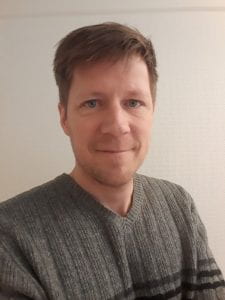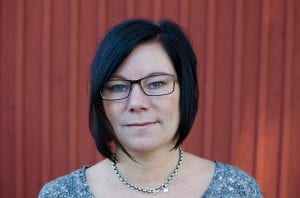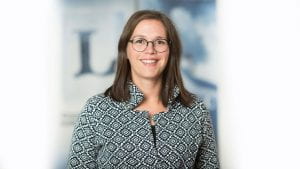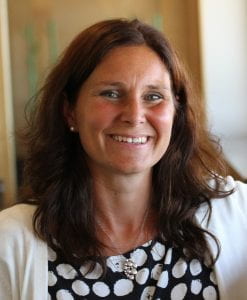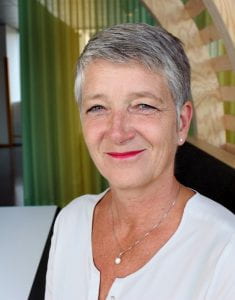Magnus Zingmark, PhD and Head of research and development, municipality of Östersund, assistant researcher at the Center for Ageing and Supportive Environments (CASE), Lund University, guest researcher Epidemiology and global health, Umeå University. Magnus´ research is focused on active and healthy ageing, the effects and cost effectiveness of interventions and the translation of research evidence to practice. His research includes reablement, health promotion, falls prevention and e-health. In addition, Magnus research is linked to the WHO network Age Friendly cities and communities. Magnus is a member of the Swedish Gerontology Association.
https://www.researchgate.net/profile/Magnus_Zingmark
Anneli Nyman, PhD and associate professor in Occupational Therapy at the Division of Health Medicine and Rehabilitation, Department of Health Education and Technology, Luleå University of Technology (LTU), Sweden. Anneli’s research interest is on aging with focus on older adults and how togetherness in everyday activities is experienced and support participation in changing life situations. A particular area of interest relates to how digital solutions can support social participation and community life among older adults. She has broad experience of different qualitative research methods and participatory research. Anneli is engaged in the Human Health and Activity lab at LTU, a laboratory used for research and education on how technology in the home can be designed to support people with health-related needs.
Maria Ranner, researcher in occupational therapy and lecturer at Luleå University of Technology, Sweden. Her research has mainly the focus on reablement and development of person-centred occupational therapy interventions (both digital and face to face). Maria had a postdoc position within the research field of reablement at the Norwegian University of Science and Technology, Norway, between year 2017 and 2019.
https://www.researchgate.net/profile/Maria_Ranner
Maria Haak, Professor in Health Sciences at Kristianstad University, Sweden. Her main research interests concern different aspects and interventions in the home and close neighbourhood environment, and how these influences health, activity, independence in old and very old age. In her research investigates the effects of user involvement in research and she actively involve users in different phases of the research process.
https://www.hkr.se/en/research/staff/maria-haak/
Aileen Bergström, has her PhD in Occupational Therapy and works in education and research at the Division of Occupational Therapy, Department of Neurobiology, Care Sciences and Society at Karolinska Institutet, Stockholm, Sweden. Aileen’s research is mainly focused on older persons, including life after stroke, life satisfaction, informal caregivers, education/learning and reablement. https://www.researchgate.net/profile/Aileen-Bergstroem
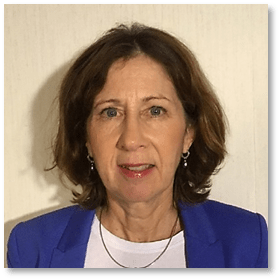
Susanne Guidetti, professor in occupational therapy and employed at The Division of Occupational Therapy, in the Department of Neurobiology, Care Sciences and Society (NVS), at Karolinska Institutet (KI) and a joint position with Karolinska University Hospital, Stockholm, Sweden. The line of research has focused on developing and evaluating complex interventions related to health promotion and prevention, interventions, training and rehabilitation in occupational therapy, but also with a wider multidisciplinary approach. Susanne is also appointed as the program director for the doctoral programme for PhD students in health care sciences (PUF-V) at KI on a wide variety of subjects within health care, research knowledge and experience. Furthermore, group leader for the HELD (Health in Everyday Life after neurological disorders) research group.
Susanne Assander
Susanne Assander is an MSc Occupational Therapist with clinical experiences from elderly care in Sweden who now is a PhD student at the Division of Occupational Therapy, in the Department of Neurobiology, Care Sciences and Society (NVS) at Karolinska Institutet, Stockholm. Her research project aims to assess how reablement can be applied and implemented in Swedish home care settings by developing, assessing and evaluating a new reablement program called ASSIST. ASSIST aims to empower older adults to conduct wanted and needed activities in everyday life and thereby increase their self-efficacy, perceived health, and well-being. The program consisted of i) the provision of reablement by home care staff ii) setting activity-oriented goals with the Canadian Occupational Performance Measure, iii) providing coaching by an Occupational Therapist to home care staff, and iiii) testing QR-codes to facilitate and streamline the program.
https://staff.ki.se/people/susanne-assander

